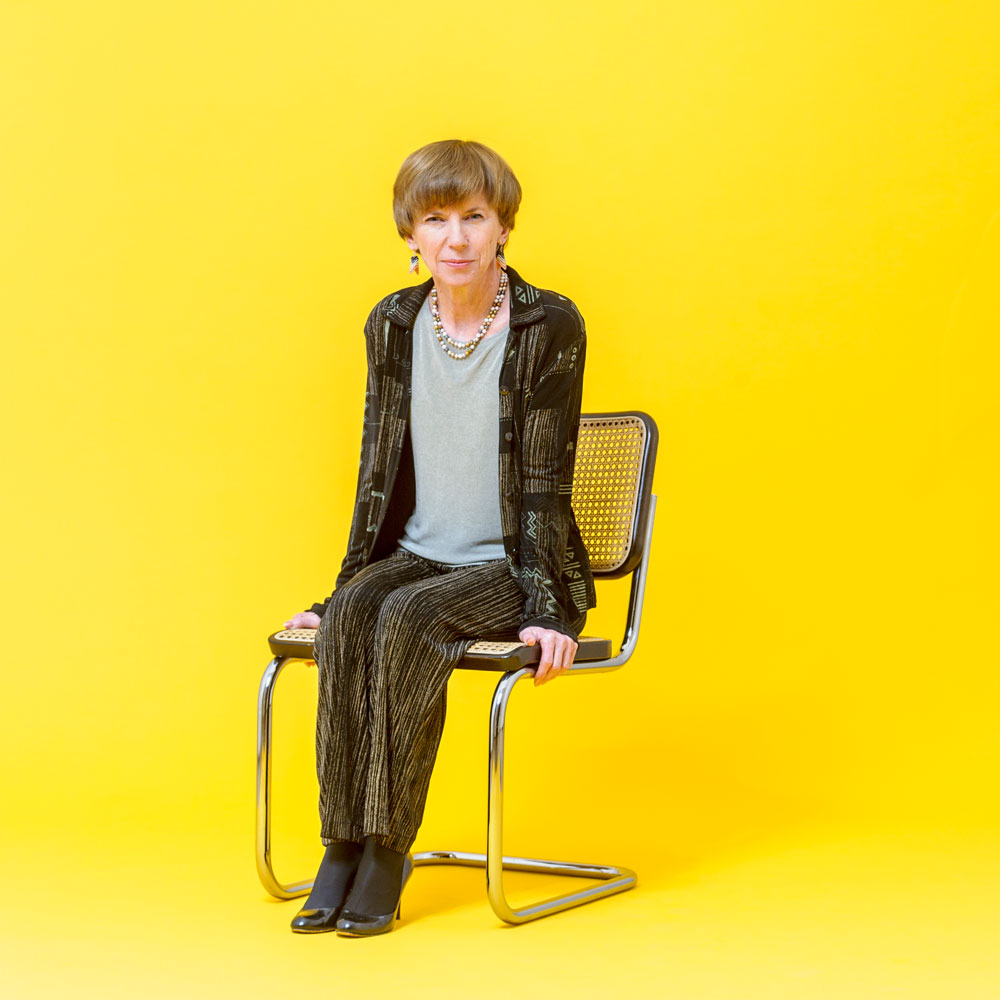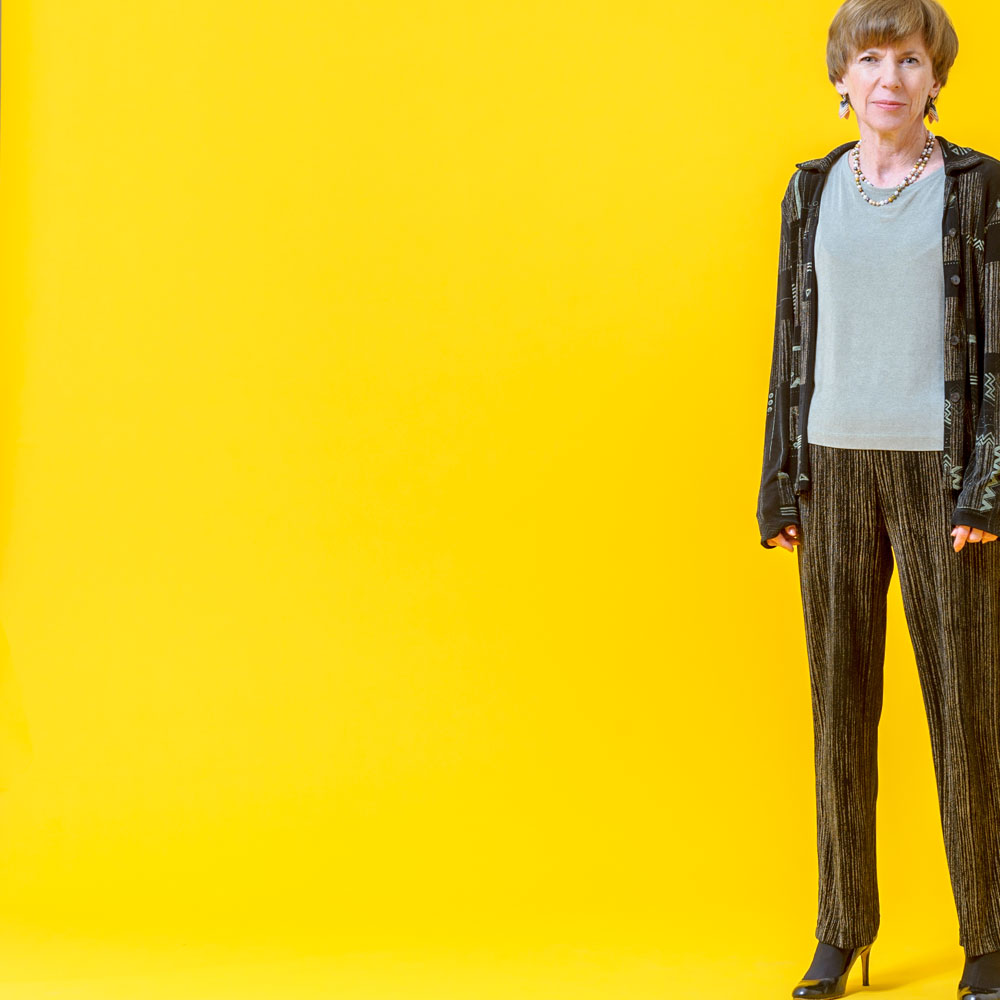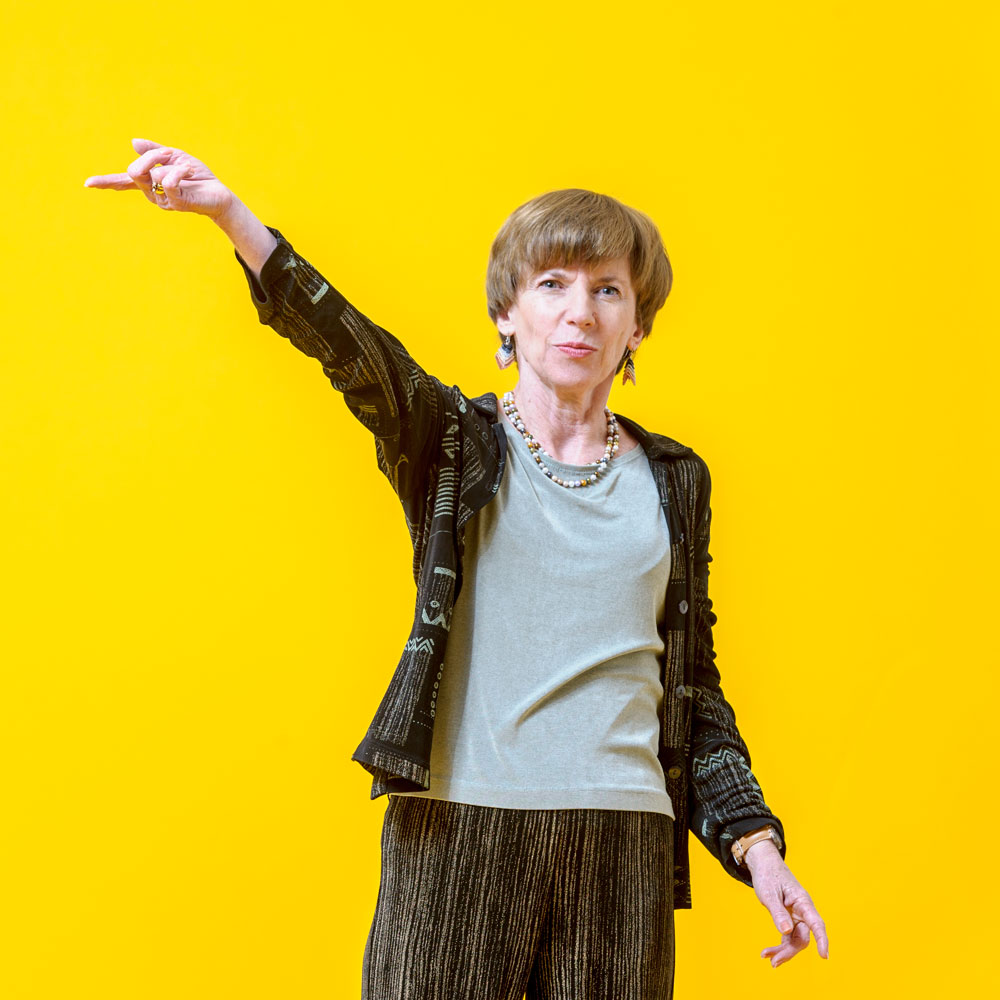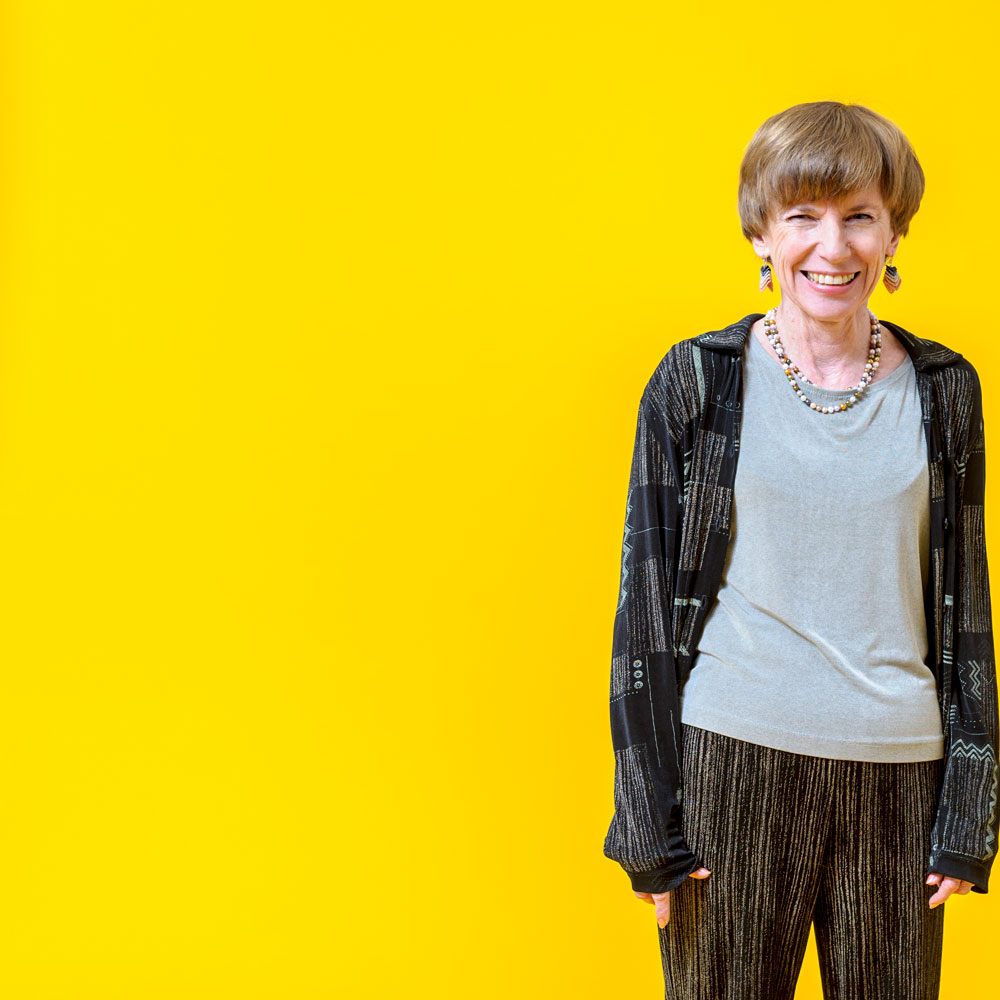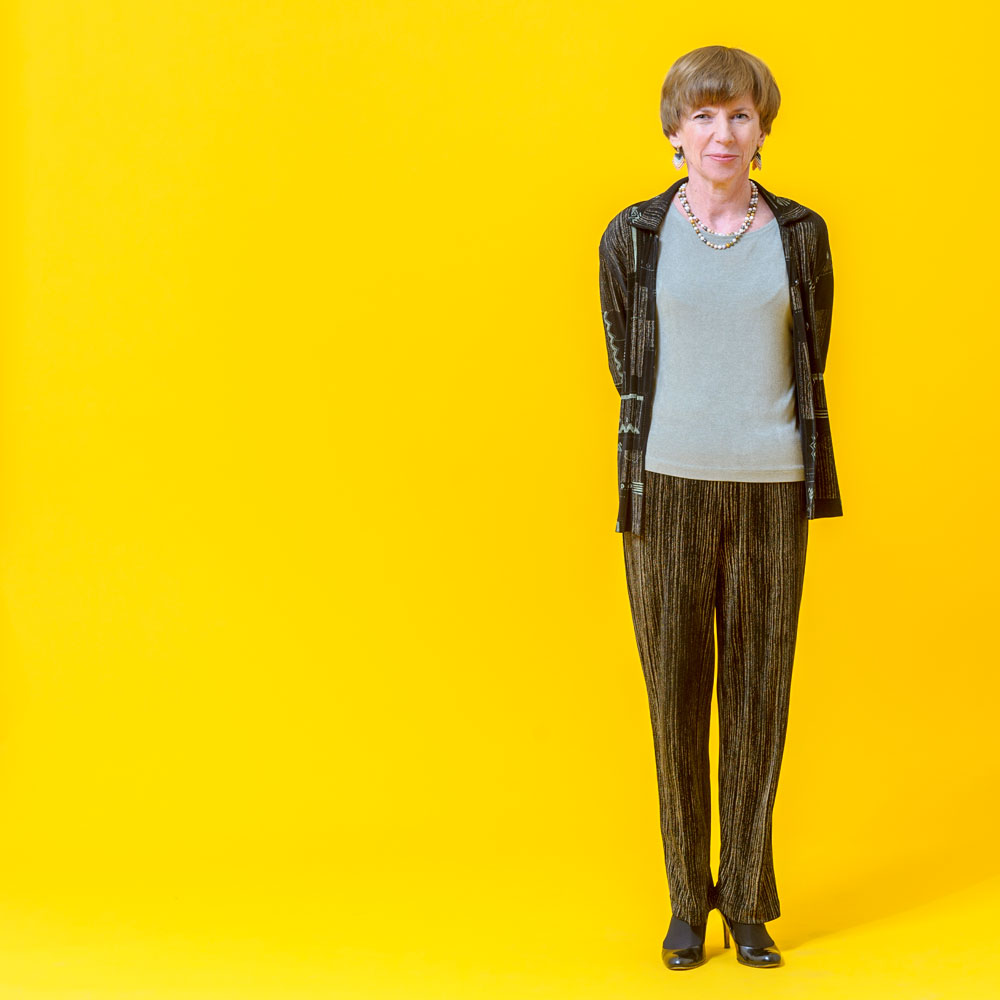Issue 9 / June 2014
The Real Gladiators
Julia Spinola
Kathleen Coleman was born in Harare, Zimbabwe. She studied Classics at the Universities of Cape Town, Rhodesia (now Zimbabwe), and Oxford. She is the James Loeb Professor of the Classics at Harvard University. Her project at the Wissenschaftskolleg is a study of the staged violence of the Roman ampitheatre – gladiatorial combat, beast hunts, and spectacular executions.
Julia Spinola: How does someone who was born and raised in Zimbabwe become interested in studying Latin?
Kathleen Coleman: Education in Zimbabwe owed much to the British system and I concentrated on languages, including Latin. When I was an undergraduate in Cape Town, Latin was required for the law degree and I found it to be the most interesting subject in the curriculum. I also took Greek and ended up concentrating in Classics for my BA; I have still not completed that law degree. My interest in the structure of the Latin language then led me to study Roman culture and history. I believe that one can’t learn a language divorced from the culture of its native-speakers. So in my work I integrate not only literary texts, but also material culture, inscriptions, and iconography.
JS: What awakened your interest in researching the games of the arena?
KC: It was via the epigrams of Martial. The small collection that we think was the first collection he published – only a fragment of which survives – dealt with spectacles in the arena. In preparing an edition with translation and commentary I discovered how fascinating and also how fragmentary our evidence for the history of the games is. So in the course of this project I took a large detour and wrote a series of articles on the spectacles. The first of these looked at people who were executed in the arena performing mythological enactments. Acting talent was certainly not involved; rather, these people had been condemned to death in a legal process, and occasionally they were dressed up and made to appear in a staged performance. For instance, an apt scenario for someone condemned to death by being exposed to wild animals would be to dress the victim up as Orpheus, who would first “enchant” a number of tame animals and then be ripped to pieces by a bear. Such a surprise ending to this well-known story was very popular with the public and was viewed as an amusing twist to it. This form of entertainment was naturally based on the notion that the condemned person was of the lowest social order.
JS: There has always been discrimination like this throughout history. Do you see any parallels to present-day societies?
KC: I always say to my students that we should study other cultures so as to understand our own. It is not a matter of finding a precise analogue in our society but of becoming sensitized to phenomena that we are proud of but which in two thousand years’ time may well look absolutely barbaric.
JS: Can you give me an example?
KC: The subject of euthanasia prompts all kinds of religious concerns and questions as to the value and significance of life. Yet I wonder whether our practice of not allowing any form of assisted suicide and keeping people alive for decades in a state of extreme misery and discomfort may seem to future generations to be extremely cruel.
JS: You still occasionally teach in Zimbabwe. What is your motivation for this?
KC: I have taught classes at a school there once or twice, and last year I taught at the University of Zimbabwe. They had been asking me to come for a long time and so I went back for a week. It was sad to see how rundown the campus is; since I graduated in the 1970s the library has made almost no new acquisitions. But there is a huge interest in classical antiquity. The students were able to draw close connections to their own situations and experiences. For the very reason that the distance is so great, there is something very liberating about using the example of an ancient society to study phenomena like slavery, general human questions regarding fairness and revenge, and political issues. In October I also taught briefly in China and found it very encouraging to see that the study of classical antiquity is no longer seen as an exclusively European enterprise.
JS: Do we need the long view afforded by antiquity to understand our present situation?
KC: Yes, I think so. Due to our narrow focus on our own situation we are often unable to imagine how things might be handled differently. The study of antiquity shows us that things can change. For instance, slavery was completely accepted in antiquity, even by the early Christians. In the New Testament the condition of slavery was used to strengthen the prospect of life after death; a world without slavery was simply inconceivable. But twenty centuries later the inconceivable is reality – at least in the West, where slavery is officially illegal. Of course, there are still some very unpleasant forms of human trafficking, but they are not accepted practices today.
JS: What aspect of arena spectacles are you looking into at the moment?
KC: I am examining depictions of gladiatorial defeat. The physical representations of gladiators in various media are quite distinct from those of people being executed. The latter appear horrified and panic-stricken, whereas the defeated gladiators in these pictures – they are mostly mosaics – plead for mercy but in an attitude that suggests a certain dignity. They were, of course, slaves, but – and this is what is remarkable – they could still exhibit bravery and endurance. We also presume that they had a personal following. In any event, the gladiators elicited a paradoxical reaction among the spectators – on the one hand, as slaves, they were worthless, but on the other they were admired for their skill and courage.
JS: By all the spectators?
KC: That's hard to say, because we have very few explicit descriptions of events in the arena. The subject was judged unworthy by literary authors, who came from the upper strata of society. Still, there were special seats reserved for them in the amphitheatre, so they must have been present. Here, again, one can see a paradoxical attitude toward arena spectacles: the arena was also about being seen. All segments of society, as far as we can tell, had assigned seats. The seating plan gave the citizenry both a sense of cohesion and a feeling that suitable distinctions were being drawn: “Everyone's here, but thank goodness I don't have to sit next to X!”
JS: Why were brutal displays so important and popular in antiquity? What was their meaning and significance?
KC: We have to try to approach this question with as much discrimination as possible. Most of us encounter relatively little real violence on a day to day basis. You see plenty of gruesome images on TV – and I am speaking here of news broadcasts, not soap operas – but whether the viewer in his living room empathizes with the victims shown in these images is another question altogether. Life in antiquity, however, was much shorter, more painful, and more brutal than it is for most of us today. But for gladiators, despite what we think of as the horror of the arena, life was a bit more predictable than it was for other people. They had trainers who coached them in a particular style of fighting, they were given medical care, and they fought just a few times a year. They enjoyed an esteem that gave them a certain social status. They had value – although, as slaves, they were inherently regarded as worthless. A lot of money was spent on their training, nutrition, and upkeep. To rent a gladiator and return him in good condition cost – and we have a legal source for this – twenty denarii, but if he died or was incapacitated, the fee was a thousand denarii. This explains why gladiators were often granted a reprieve. Today we suspect that only some five percent of defeated gladiators were killed. About twenty years ago the first gladiatorial cemetery was excavated in Ephesus, and now we know that very large, muscular men were chosen for the arena. Their skeletons are enormous and display so many injuries that it is difficult to imagine they could have survived under the conditions prevailing at the time. So it is not the case that people's fascination with arena spectacles stemmed solely from witnessing as much bloodshed as possible; it was also a matter of the professional skill of the combatants. If it had only been about seeing one man wound another, then the gladiators would not have had to train for so long. We labor under a lot of misconceptions about this, and we can conclude that we do not really understand what gladiatorial combat was all about.
JS: Then what, in your view, was it all about? Why did this entertainment based on violent spectacles spread? Why wasn't Greek tragedy adapted and developed instead?
KC: You could turn the question round and ask why the Greeks adapted their theatres for arena displays and stopped performing tragedy. It is simply false to set up the Greeks as a civilized and refined people in contrast to the barbaric Romans. The Greeks adopted Roman spectacles with tremendous enthusiasm. In both east and west the games had their own function in a very hierarchical society. Spectacles were closely tied to the cult of the emperor, and the sponsors who paid for them gained considerable prestige. Also, we have to distinguish between gladiatorial combat and execution. Condemned criminals were thrown to wild beasts or burned alive or despatched by whatever penalty was prescribed for them. Here we can legimitately speak of “legalized brutality”. But if we are going to put the label “brutal” on professional gladiatorial combat, then we must also call boxing or American football “brutal”. There is enough of a following for these types of sport today to prompt the question: why does society value this sort of thing?
JS: Do societies always require a venue where pain, brutality, and death can be showcased?
KC: I hope not. I would like to imagine that one day we will have a society that is so fair, so safe, and so fulfilling that our violent instincts will be channeled into something more constructive. But that is, I realize, a Utopian vision. What is poorly understood is whether the experience of watching a violent spectacle is cathartic or infectious. One possibility is to assume that a spectator came home from the arena and meekly did the washing-up. Another, perhaps more likely, possibility is that he came home and hit his wife. Here at the Wissenschaftskolleg, in the presence of so many evolutionary biologists, I am led to wonder whether society needs a place for violence in order to stimulate our survival instincts. Schadenfreude, that wonderful German word, is undeniably an impulse in human nature. It gives one the feeling: How right and proper – and fortunate – that this is not happening to me.
JS: There is also a very popular entertainment culture today that addresses the instinct for Schadenfreude.
KC: Yes, just think of the trailers to films. It is always the most violent scenes that are shown. One has to ask why this appeals to people so much. Perhaps psychologists will find an answer to this one day. But it is perfectly clear that people do enjoy it.
JS: Why did the games eventually come to an end?
KC: The latest evidence for gladiatorial combat is from the fifth century. So this practice flourished for more than six hundred years. There are many competing explanations for why it came to an end, none of which supplies the whole answer. A gradual shift of taste is one component. The public wanted more and more novelty. One thesis is that this dynamic of ever more spectacular attractions finally ran out of steam and left the public bored. The games were also phenomenally expensive. In occupying certain public offices an individual had to host games, and they gradually became so expensive that nobody was willing to volunteer for these positions any more. But the beast hunts, the most costly of all the spectacles, continued for at least another century after gladiatorial combat died out. So it can’t have been purely a matter of logistics and expense. Some scholars say that the spread of Christianity played a part. Others don't see this as having played a very prominent role. The standard evidence for it is a statement preserved in the Theodosian Code that is attributed to Constantine after his conversion to Christianity: cruenta spectacula in otio civili et domestica quiete non placent (“Bloody spectacles in times of civil calm and peace at home are not pleasing”). But gladiatorial combat continued for another century after this. Interestingly, even the early Christian authorities almost never criticized the games from a humanitarian perspective. They were not concerned so much with the protagonists in the arena as with the effect that the games would have on the public – that is, they worried about the loss of self-control as a result of contagious “hype” among the spectators. So much was involved in putting on the spectacles that Roman society was not capable of simply abandoning them. Nowadays we are also enmeshed in habits that we know are damaging – but we are caught in a trap and we are helpless to fix things. You came here by car, didn’t you?
JS: Yes.
KC: Of course; you had to get here somehow, right? Your timetable was tight, so you took the car. But it is not good for the planet. We – me too – go on flying, even though we know that it makes the planet suffer. We still do it. I hope that we get some sympathy from future generations. If there is a planet left by then.
JS: That sounds very pessimistic.
KC: Yes; but sometimes I feel very pessimistic. Just look at the extreme weather events all over the world. Experts say that we have reached a point of no return. Certain species will survive, whatever happens. But whether human beings will be among them is not at all certain. Think of the social tensions and conflicts that will emerge as increasing numbers of people are driven from their homes by catastrophic floods. Nothing much will happen to the pair of us, because of our privileged situation. But I think of the people in my part of the world, in Africa, in Indonesia, where there is tremendous poverty. Experts say that in 100–300 years 26 percent of Cambridge, Massachusetts, where I live, will be under water. Social problems will become irrelevant if the planet disappears.
JS: How do you personally deal with the violence that you are confronted with in your study of arena combat? Is it sometimes a problem?
KC: The only thing that can prevent immediate empathy is “scholarly distance”. Otherwise one wouldn't be able to cope. Many sources are profoundly disturbing – like the images on mosaics or everyday items like lamps or dinner-plates, for example, that show a leopard attacking a man who is tied to a stake, and things like that. Once you had cleaned your plate, that is what you saw. When I show something like this in my lectures, I warn my students beforehand. This may simply show that I am out of touch with a generation that plays violent video games with equanimity. But I think that people are, in fact, shocked by such a frank representation of actual human suffering. In every society where there are rigid distinctions drawn between different categories of persons it becomes possible to do things to the supposedly inferior categories that would be taboo with the rest. Still we must try to understand these things, without condoning them.
More on: Kathleen M. Coleman
Images: © Maurice Weiss
